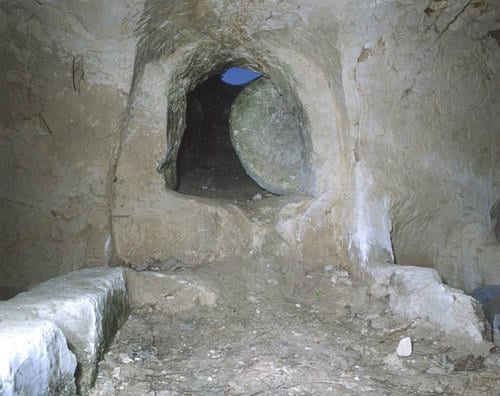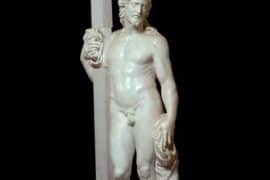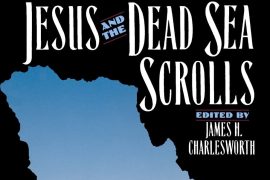I believe in the Holy Spirit, the holy catholic church, the communion of saints, the forgiveness of sins, the resurrection of the FLESH, and the life everlasting. Amen.
Πιστεύω εις το Πνευμα το `Αγιον, αγίαν καθολικην εκκλησίαν, αγίων κοινωνίαν, άφεσιν `αμαρτιων, σαρκος ανάστασιν, ξωήν αιώνιον. Αμήν.
In the original Greek and Latin texts of the Apostles Creed, faith in the “resurrection of the flesh” is affirmed without equivocation. Although Origen denied this idea, he was subsequently condemned and the view Augustine argued in detail in the final chapters of his City of God, has become the theological doctrine of the Christian Church. As Paula Fredriksen puts it so well, in her important article in the Karlfried Froehlich festschrift, “Vile Bodies: Paul and Augustine on the Resurrection of the Flesh”:
The body that you gave breakfast to this morning, the body that helped you navigate your automobile, the body with which you at this moment occupy your chair is, according to Augustine, the very same body that will dwell in the heavens and see God. This is an extraordinary claim. It was scarcely coherent, and it was certainly unscientific, when he presented it in AD. 428, in the closing book of City of God. And he was scarcely helped in formulating it by having to base his position on an exegesis of Paul, especially 1 Cor. 15:50: “Flesh and blood cannot inherit the kingdom of God.”
In this 12th and final segment of my series: “Ideas of Death, Afterlife, and the Future in the Ancient Western World,” I focus on early Christians biggest challenge–how to maintain faith in the literal resurrection of Jesus’ body of flesh and bones, given our earliest and only eye-witness testimony–that of the apostle Paul, to Jesus’ resurrection as a “life-giving Spirit,” which has nothing whatsoever to do with corpse revival or bodies of “flesh and blood,” which he emphatically declares “will not inherit the Kingdom of God.”
As an Amazon Associate I earn from qualifying purchases with no extra cost to buyers









Comments are closed.